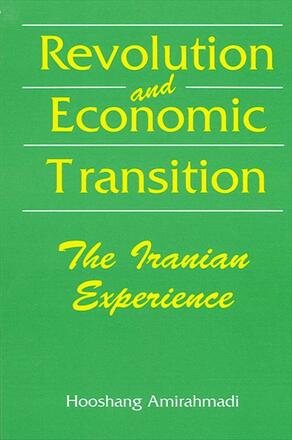
Revolution and Economic Transition
The Iranian Experience
Alternative formats available from:
Description
Amirahmadi focuses on the Iranian economy under the Islamic Republic, a subject that remains largely neglected in post-revolutionary Iranian research and analysis. Drawing from a wealth of primary sources, he uses an empirical-logical framework of analysis within a modified world-system perspective to offer a detailed and balanced picture of the macroeconomic trends, problems, and policies since 1976.
Hooshang Amirahmadi is Associate Professor in the Department of Urban Planning and Policy Development, and Director of Middle Eastern Studies at Rutgers University.
Reviews
"This book is timely, analytical and comprehensive, and will fill a serious gap in our knowledge of the Islamic Republic. " — Abbas Alnasrawi, Department of Economics, University of Vermont
"The topic is significant inasmuch as there has been considerable speculation about Iran's economic policies and capacities but very little hard data about trends and policies. The debate about and speculation over economics has been linked to discussions about the nature, course and outcome of the Iranian revolution. Amirahmadi contributes to these debates, both theoretically and empirically.
"The book is tremendously useful, not only for its scrupulous account of post-revolutionary economic trends, but also for its extensive bibliography, use of wide array of primary and secondary sources (sources generally unavailable, inaccessible, or difficult-to-obtain from Iran, and interviews), and its combination of theory, method, description, and policy recommendations. It is bound to be recognized as a major resource and reference book. The book is original, well researched, thorough, readable, and authoritative. " — Valentine M. Moghadam, World Institute for Development Economics Research